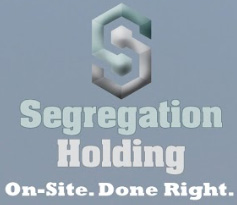How does owning Rental Property affect taxes?
>Many people own rental property. Residential rental property includes a single-family house, duplex, triplex, quad-plex, and, of course, apartments of all sizes. Rental property can also include commercial property. This can include all types of properties such as office building, retail, warehouse, and more.
If you already own property, then you know real estate is generally considered a long-term investment, since liquidity is not always an option. Income-producing rental property receives certain favorable as well as unfavorable tax treatment.
Tax Advantages
Rental properties typically appreciate in value. Rental property under ideal circumstances generates positive cash flow. This means you make more in rent than you pay out in expenses! Believe it or not there are plenty who own rental property who don’t get that basic concept. There are other deductions like mortgage interest and property taxes. There is also insurance, utilities, supplies, and associated fees. Then there are “soft” costs like attorney’s, CPA’s, and property management fees.

Reduce your Tax Burden!
One major rental property tax advantage is cost segregation. This is a strategy rarely used though IRS required. It is the only Internal Revenue Code rarely enforced. The simple reason is that cost segregation, when properly applied with the engineering expertise, reduces income taxes very significantly. How significantly? The typical residential rental property saves about $8,000 in taxes on a $100,000 investment. Commercial rental property is just as good, sometimes better.
Additionally, cost segregation has other benefits. For example, it reduces property taxes, some sales & use taxes, and better borrowing leverage. Lenders view the reduced taxes as additional “debt-service coverage.” This allows for a reduction in interest rate or down payment requirements or lower capital reserves. These are all great to know when buying or building a rental property.
Tax Disadvantages
Remember that rental property typically appreciates in value? Recent history tells us that doesn’t always happen. It can “depreciate” in value. So, obviously, conversely from above,  you could have negative cash flow. You aren’t making enough to cover your expenses.
you could have negative cash flow. You aren’t making enough to cover your expenses.
Then you have what is called “passive loss limitations.” This affects many, if not most, rental property owners. If you have a “job” and your rental property is an “investment” then you are limited to your ability to write-off losses if you have any. Henssler Financial shares this in an article titled “Tax Advantages and Disadvantages of owning Rental Properties.”
Always Consult Tax Advisor
When buying or selling rental property, it is smart to consult with your tax advisor. Whether this is your CPA or tax attorney or cost segregation engineer, you should always do so.



